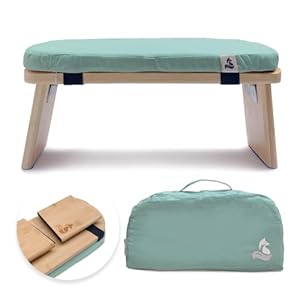
When developing a mental health toolkit, consider the power of introspection and tailored strategies. By honing in on what truly matters to you and embracing proactive measures, you lay the groundwork for resilience and well-being. Through a deliberate and thoughtful approach, you can cultivate a toolkit that not only supports you during challenging times but also empowers you to navigate life’s complexities with a sense of purpose and strength. Remember, the journey to creating a robust mental health toolkit begins with self-awareness and a commitment to holistic wellness.
Understanding Your Needs
To begin creating your mental health toolkit, first take a moment to assess your individual needs. Understanding what triggers your stress, anxiety, or any other mental health concerns is crucial. Reflect on your daily routines, interactions, and environments that may impact your well-being. Consider keeping a journal to track your emotions and identify patterns. Recognizing your triggers allows you to proactively address them in your toolkit.
Next, evaluate what coping mechanisms or activities have helped you manage stress in the past. This could include exercise, mindfulness practices, creative outlets, or talking to a trusted friend. Incorporating these strategies into your toolkit can provide you with familiar tools to navigate challenging times.
Additionally, think about what additional support you may need. This could range from professional help, such as therapy or counseling, to simply reaching out to loved ones for emotional support. Your mental health toolkit should include resources that cater to your unique needs and preferences.
Building Your Resources
Consider assembling a variety of tools and strategies that cater to your mental health needs when building your resources. Start by identifying activities or practices that bring you peace and comfort. This could include journaling, mindfulness exercises, physical activities, or creative outlets like painting or playing music. Having a range of options allows you to choose what works best for you in different situations.
In addition to individual practices, seek out community resources such as support groups or mental health hotlines. Connecting with others who understand what you’re going through can provide a sense of belonging and validation. Online forums and social media groups can also offer a platform for sharing experiences and coping strategies.
Don’t forget to include professional resources in your toolkit. This may involve finding a therapist or counselor who can provide guidance and support tailored to your specific needs. Consider exploring different therapy approaches to see what resonates with you. By building a comprehensive set of resources, you empower yourself to navigate challenges and prioritize your mental well-being effectively.
Implementing Self-Care Practices
When incorporating self-care practices into your routine, start by identifying activities that rejuvenate and restore your mental well-being. These activities can vary from person to person, so it’s essential to pinpoint what works best for you. Maybe it’s taking a long bath, going for a walk in nature, practicing mindfulness, or indulging in a hobby you love. Once you’ve identified these activities, make a conscious effort to integrate them into your daily or weekly schedule.
Setting aside dedicated time for self-care is crucial. Treat it as non-negotiable ‘me time’ to recharge and nurture your mental health. Remember, self-care isn’t selfish; it’s a necessary practice to maintain overall well-being.
Additionally, don’t be afraid to experiment with different self-care strategies to find what truly resonates with you. What works during one period of your life may evolve over time, so stay attuned to your changing needs and adjust your self-care routine accordingly.
Monitoring and Adapting Your Toolkit
Wondering how to ensure your mental health toolkit remains effective and relevant over time? Monitoring and adapting your toolkit is crucial for maintaining its usefulness. Regularly assess the strategies and techniques you’ve implemented. Keep track of what’s working well and what may need adjustment. Remember, flexibility is key in mental health maintenance. Life is dynamic, and what works for you today may not be as effective tomorrow.
Stay attuned to changes in your mental health needs. If you notice certain tools are no longer as helpful, don’t hesitate to replace them with new ones. Your mental health toolkit should evolve with you. Seek feedback from trusted individuals who understand your journey. They may offer insights on areas that could be improved or suggest new approaches to try.
Adapting your toolkit isn’t a sign of weakness but a demonstration of strength and self-awareness. Embrace the process of fine-tuning your mental health strategies to better support your overall well-being. Remember, it’s okay to experiment and explore new techniques that resonate with you. Your mental health toolkit is a dynamic resource that can grow and adapt alongside you.
Meditation Benches














